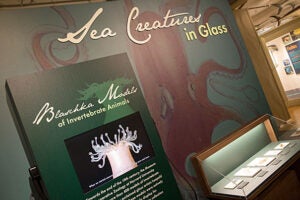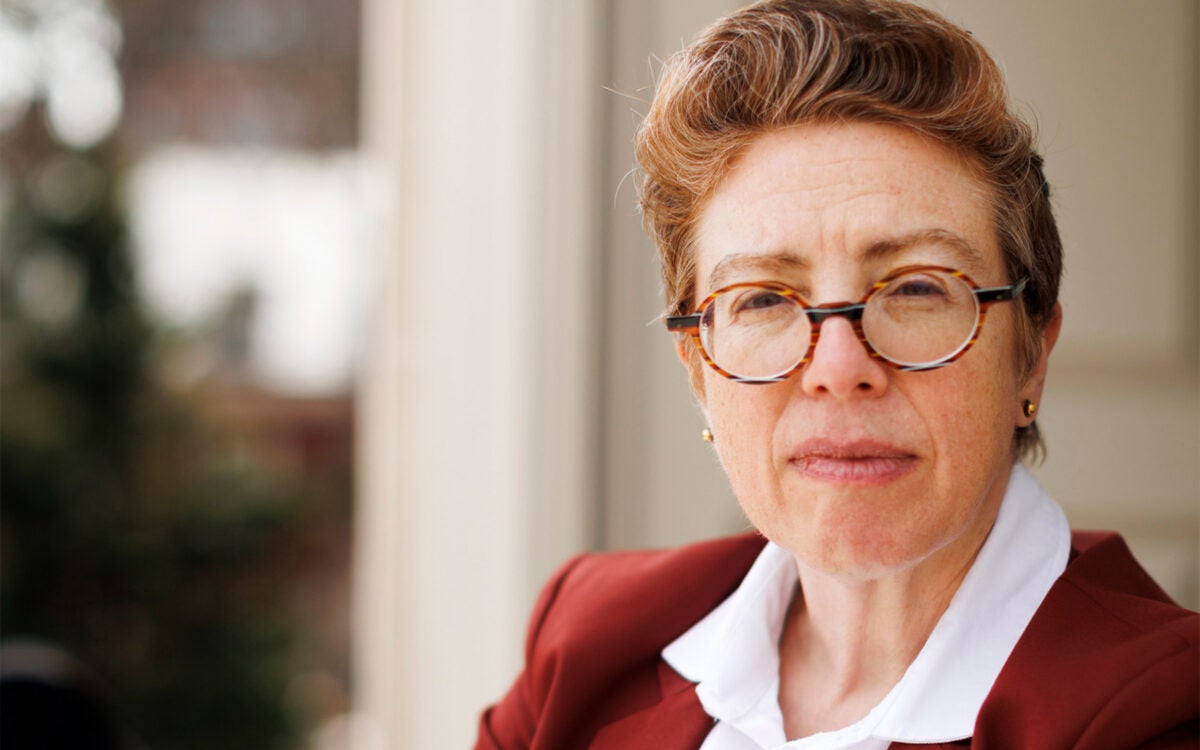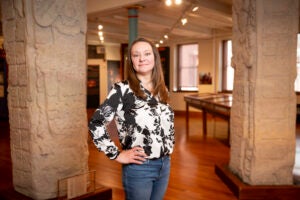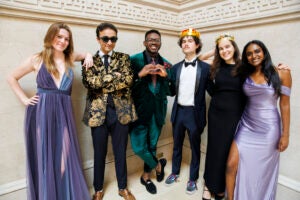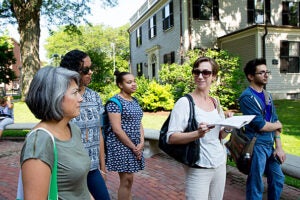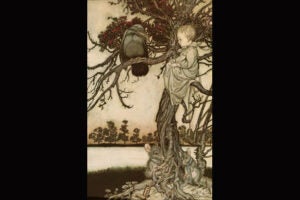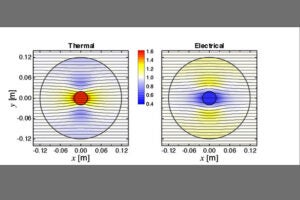Tag: FAS
-
Campus & Community
Settling in
The members of Harvard’s Class of 2018 arrive and move into their dorms, where they are welcomed by University leaders.
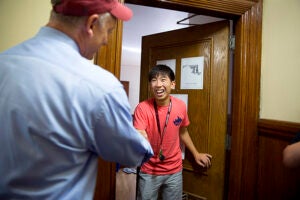
-
Campus & Community
Engage, enjoy, get centered
As freshmen move into dorms in and around the Yard, fellow students, faculty, and administrators offer tips on how best to adjust to the Harvard experience, from maintaining basic wellness to exploring the vast resources Harvard has to offer.
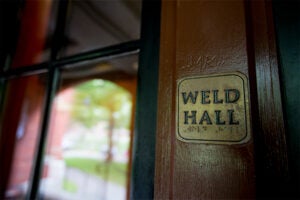
-
Health
When cooperation counts
A new study conducted by Harvard scientists shows that in deer mice, a species known to be highly promiscuous, sperm clump together to swim in a more linear fashion, increasing their chances of fertilization.
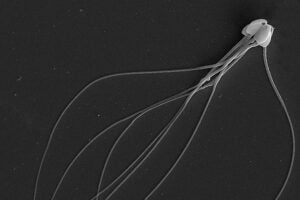
-
Campus & Community
Experience for a lifetime
This summer, 51 local high school students and recent graduates spent the school break working in various departments across Harvard’s Cambridge and Allston campuses as part of the Summer Youth Employment Program.
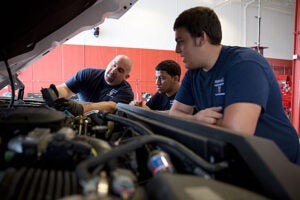
-
Science & Tech
Fighting unfairness
A new study by Harvard scientists suggests that, from a young age, children are biased in favor of their own social groups when they intervene in what they believe are unfair situations. But as they get older, they can learn to become more impartial.
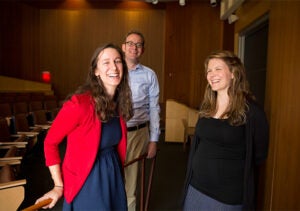
-
Science & Tech
The 1,000-robot swarm
Harvard researchers create a swarm of 1,000 tiny robots that, upon command, can autonomously combine to form requested shapes — a significant advance in artificial intelligence.
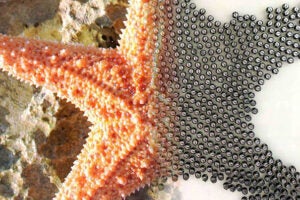
-
Campus & Community
Classrooms without walls
Summer camps run by the Phillips Brooks House Association are making a difference for youths across Boston and Cambridge.
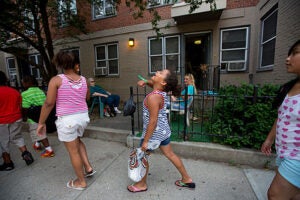
-
Health
Enemy of ash
The Gazette spoke with Arboretum officials about the recent arrival of the emerald ash borer.
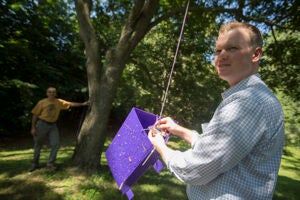
-
Arts & Culture
Sampling the scholar’s life
Eleven Harvard undergraduates worked closely with Harvard faculty and administrators this summer as part of the Summer Humanities and Arts Research Program. The second-year program connects students seeking research opportunities in the arts and humanities with Harvard scholars and experts looking for help.
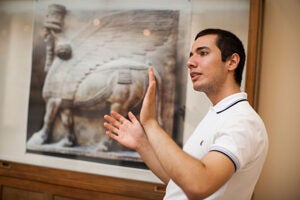
-
Health
Neurons at work
Using genetic tools to implant genes that produce fluorescent proteins in the DNA of transparent C. elegans worms, Harvard scientists have been able to shed light on neuron-specific “alternative splicing,” a process that allows a single gene to produce many different proteins.
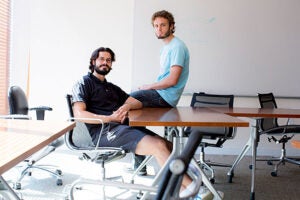
-
Science & Tech
‘It was sort of a eureka moment’
Harvard engineers demonstrated a novel engineering process by creating a self-assembling robot that folds up from a flat sheet of composite material and then walks away. The Gazette spoke with engineering Professor Robert Wood about the project.
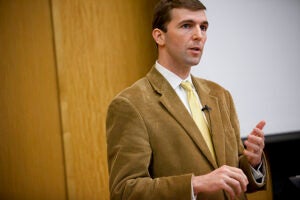
-
Science & Tech
Robot folds up, walks away
A team of engineers used little more than paper and a classic children’s toy to build a robot that assembles itself into a complex shape in four minutes, and crawls away without human intervention.
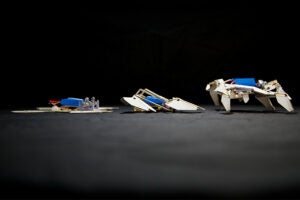
-
Health
Progress against ALS
Studies begun by Harvard Stem Cell Institute scientists eight years ago have led to a report that may be a major step in developing treatments for amyotrophic lateral sclerosis, or Lou Gehrig’s disease.
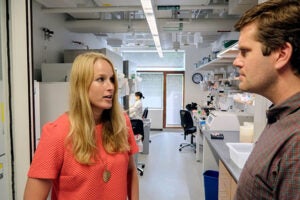
-
Science & Tech
Cheap and compact medical testing
Harvard researchers have devised an inexpensive medical detector that costs a fraction of the price of existing devices, and can be used in poor settings around the world.
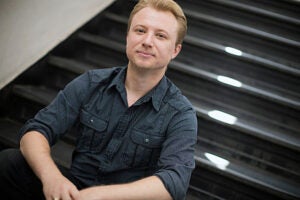
-
Campus & Community
20 countries, one camp
The Boston Refugee Youth Enrichment summer camp, one of 12 Summer Urban Program camps offered by the Phillips Brooks House Association (PBHA), is helping dozens of immigrant children feel more…
-
Science & Tech
A new view of gentrification
Researchers used Google Street View to conduct a study of gentrification in Chicago.
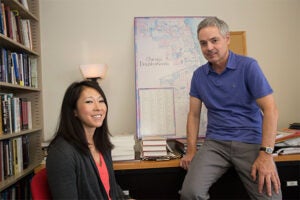
-
Health
Help for halting autism symptoms
A new study shows that boosting inhibitory neurotransmission early in brain development can help reverse deficits in inhibitory circuit maturation that are associated with autism.
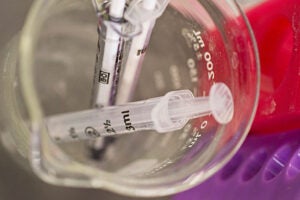
-
Arts & Culture
Lessons in craft
A group of young students from Boston are working with members of the American Repertory Theater to craft short plays based on themes from “Finding Neverland.”
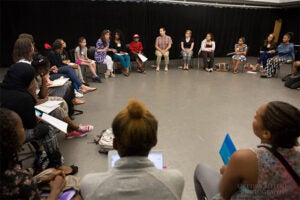
-
Science & Tech
Wyss Institute’s organs-on-chips develops into new company
The Wyss Institute for Biologically Inspired Engineering at Harvard University announced on Monday that its human organs-on-chips technology will be commercialized by a newly formed private company to accelerate the development of pharmaceutical, chemical, cosmetic, and personalized medicine products.
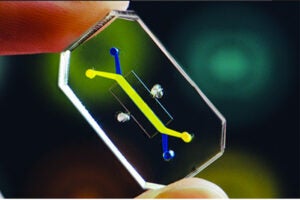
-
Campus & Community
Adam Cohen receives 2014 Blavatnik Award
Adam Cohen, professor of chemistry and chemical biology and of physics, has been named one of three winners of the 2014 Blavatnik National Awards, which honor young scientists and engineers who have demonstrated important insights in their respective fields and who show exceptional promise going forward.
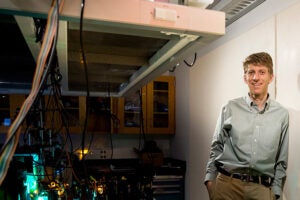
-
Health
Viewing how neurons work
A new technique for observing neural activity will allow scientists to stimulate neurons and observe their firing pattern in real time. Tracing those neural pathways can help researchers answer questions about how neural signals propagate, and could one day allow doctors to design individualized treatments for a host of disorders.
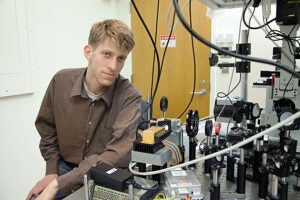
-
Health
Sizing up bacteria
A new theoretical framework outlined by a Harvard scientist could help solve the mystery of how bacterial cells coordinate processes that are critical to cellular division, such as DNA replication, and how bacteria know when to divide.
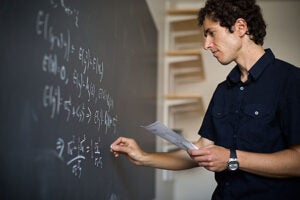
-
Campus & Community
A dream, ‘quietly imagined,’ come true
Rakesh Khurana became dean of Harvard College on July 1. On his first official day on the job, he reflected on the College’s power to transform undergraduates, and as a result to change society for the better.
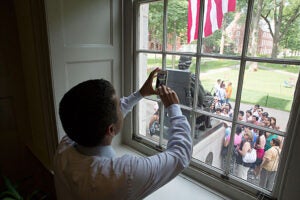
-
Nation & World
Renewing urban renewal
Edward Glaeser, an economics, government, and public policy expert at Harvard Kennedy School, and Jerold Kayden, an urban planning and design professor at the Graduate School of Design, discuss findings from a new Brookings Institution study on the rise of innovation districts across the nation.
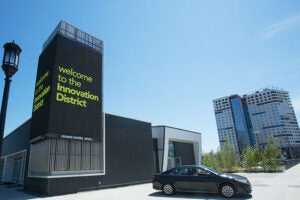
-
Campus & Community
Energy research wins grant
Harvard chemist Cynthia Friend has been awarded a major center grant from the U.S. Department of Energy’s Basic Energy Sciences’ Energy Frontier Research Centers program, which is designed “to accelerate the scientific breakthroughs needed to build the 21st-century energy economy.”
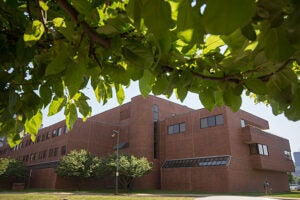
-
Nation & World
Falling fertility rates
For the past several years, Mary Brinton, Radcliffe fellow and chair of Harvard’s sociology department, and a team of collaborators have been exploring declining fertility rates in postindustrial societies.
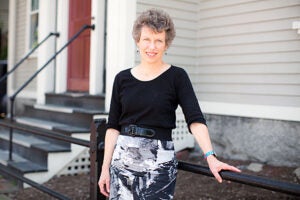
-
Campus & Community
Undersea life, clear as glass
The Harvard Museum of Natural History has opened a permanent exhibition of the glass sea creatures created by famed artists Leopold and Rudolf Blaschka more than a century ago.
